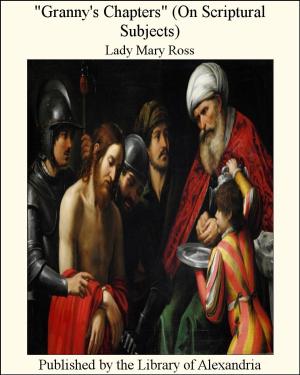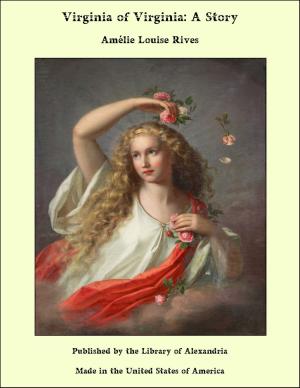Biographical Study of A. W. Kinglake
Nonfiction, Religion & Spirituality, New Age, History, Fiction & Literature| Author: | William Tuckwell | ISBN: | 9781465549686 |
| Publisher: | Library of Alexandria | Publication: | March 8, 2015 |
| Imprint: | Language: | English |
| Author: | William Tuckwell |
| ISBN: | 9781465549686 |
| Publisher: | Library of Alexandria |
| Publication: | March 8, 2015 |
| Imprint: | |
| Language: | English |
The fourth decade of the deceased century dawned on a procession of Oriental pilgrims, variously qualified or disqualified to hold the gorgeous East in fee, who, with bakshîsh in their purses, a theory in their brains, an unfilled diary-book in their portmanteaus, sought out the Holy Land, the Sinai peninsula, the valley of the Nile, sometimes even Armenia and the Monte Santo, and returned home to emit their illustrated and mapped octavos. We have the type delineated admiringly in Miss Yonge’s “Heartsease,” {1} bitterly in Miss Skene’s “Use and Abuse,” facetiously in the Clarence Bulbul of “Our Street.” “Hang it! has not everybody written an Eastern book? I should like to meet anybody in society now who has not been up to the Second Cataract. My Lord Castleroyal has done one - an honest one; my Lord Youngent another - an amusing one; my Lord Woolsey another - a pious one; there is the ‘Cutlet and the Cabob’ - a sentimental one; Timbuctoothen - a humorous one.” Lord Carlisle’s honesty, Lord Nugent’s fun, Lord Lindsay’s piety, failed to float their books. Miss Martineau, clear, frank, unemotional Curzon, fuddling the Levantine monks with rosoglio that he might fleece them of their treasured hereditary manuscripts, even Eliot Warburton’s power, colouring, play of fancy, have yielded to the mobility of Time. Two alone out of the gallant company maintain their vogue to-day: Stanley’s “Sinai and Palestine,” as a Fifth Gospel, an inspired Scripture Gazetteer; and “Eothen,” as a literary gem of purest ray serene. In 1898 a reprint of the first edition was given to the public, prefaced by a brief eulogium of the book and a slight notice of the author. It brought to the writer of the “Introduction” not only kind and indulgent criticism, but valuable corrections, fresh facts, clues to further knowledge. These last have been carefully followed out.
The fourth decade of the deceased century dawned on a procession of Oriental pilgrims, variously qualified or disqualified to hold the gorgeous East in fee, who, with bakshîsh in their purses, a theory in their brains, an unfilled diary-book in their portmanteaus, sought out the Holy Land, the Sinai peninsula, the valley of the Nile, sometimes even Armenia and the Monte Santo, and returned home to emit their illustrated and mapped octavos. We have the type delineated admiringly in Miss Yonge’s “Heartsease,” {1} bitterly in Miss Skene’s “Use and Abuse,” facetiously in the Clarence Bulbul of “Our Street.” “Hang it! has not everybody written an Eastern book? I should like to meet anybody in society now who has not been up to the Second Cataract. My Lord Castleroyal has done one - an honest one; my Lord Youngent another - an amusing one; my Lord Woolsey another - a pious one; there is the ‘Cutlet and the Cabob’ - a sentimental one; Timbuctoothen - a humorous one.” Lord Carlisle’s honesty, Lord Nugent’s fun, Lord Lindsay’s piety, failed to float their books. Miss Martineau, clear, frank, unemotional Curzon, fuddling the Levantine monks with rosoglio that he might fleece them of their treasured hereditary manuscripts, even Eliot Warburton’s power, colouring, play of fancy, have yielded to the mobility of Time. Two alone out of the gallant company maintain their vogue to-day: Stanley’s “Sinai and Palestine,” as a Fifth Gospel, an inspired Scripture Gazetteer; and “Eothen,” as a literary gem of purest ray serene. In 1898 a reprint of the first edition was given to the public, prefaced by a brief eulogium of the book and a slight notice of the author. It brought to the writer of the “Introduction” not only kind and indulgent criticism, but valuable corrections, fresh facts, clues to further knowledge. These last have been carefully followed out.












![Cover of the book Rocky Mountain [Colorado] National Park by William Tuckwell](https://www.kuoky.com/images/2015/march/300x300/9781465508690-kJJ6_300x.jpg)


